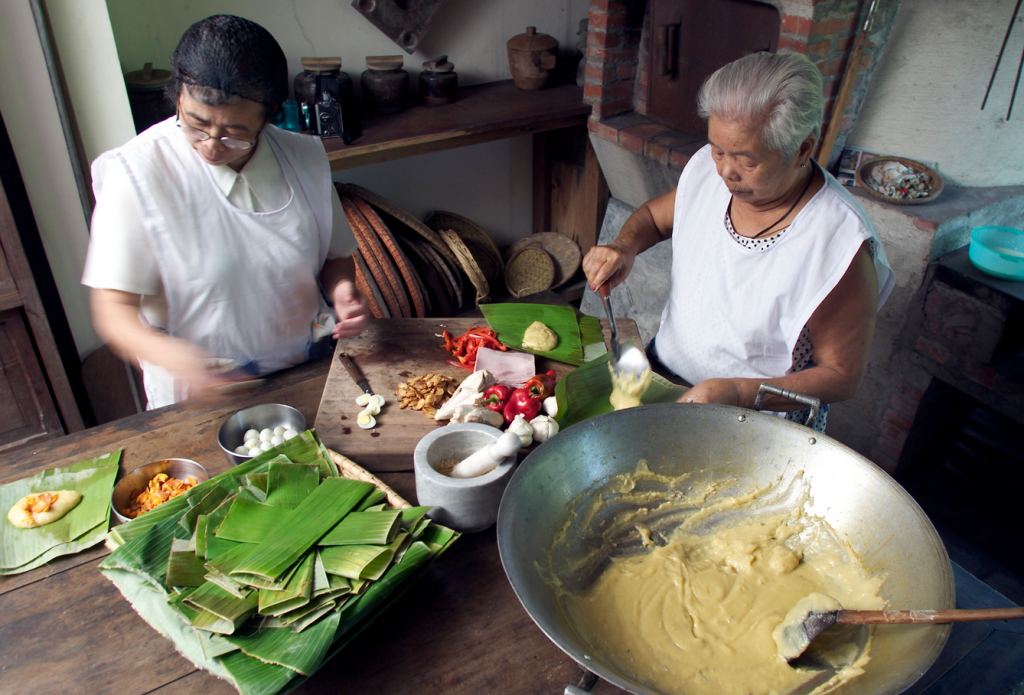
I was listening to the radio today — you know, the place where we used to hear what we now call podcasts, as long as they come over our computer’s or smartphone’s speakers…? — and heard an interesting episode of the cooking show The Splendid Table, devoted to Filipino food.
What caught my ear was how the guest spoke of the early Spanish influence, when the Philippines was their colonial possession, governed from what was then called New Spain (a portion of which we today know as Mexico), well prior to U.S. involvement (which began as a result of Spain’s defeat in 1898 in the Spanish-American war). For at the 8:38 point of the episode Amy Besa says the following:
The tamales is a very interesting dish that came over. But Filipinos have indigenized it…
Significantly, she didn’t say it was modified, adapted, borrowed or even domesticated, but, instead, indigenized….
Now, I realize that when groups in power do this sort of thing, those who disagree with their exercise of influence often call such acts appropriation, and a clearly (negative) moral judgment comes with the classification (i.e., taking something that does not rightly belong to you). But what was curious in the case of the tamales was that I also heard a moral judgment in how they were discussed, but now it was a positive one: pride for the locals’ resilient and innovative ability to make something uniquely their own.
It brought back memories of conversations that helped to get Culture on the Edge off the ground back in 2012, such as the ironic way in which seemingly innocuous descriptions actually entrench normative views, as in the case of how calling something “a diaspora” necessarily inscribes the notion of a specific, authoritative center from which seemingly secondary and derivative forms are thought to emerge, once at a distance. More than likely there were a wide variety of subgroups, all competing at the long past point of origin, for the right to stand in for the group as a whole; but, depending on ones tastes, only one ends up standing out when diaspora studies look back for a nostalgic homeland.
There’s probably many better examples than this one cooking show talking about tamales, of course, but it seemed to be an easily digested example of how language signifies and reproduces position and interests, given that replacing her use of “indigenize” with “appropriate” completely changes the topic of that conversation. (In fact, I’d conjecture that the speaker would not agree to such a substitution — and for good reason, since the representation of the locals changes completely, as it does if we just say they adapted it.) For, in this case, our choice of words can either signify working creatively with what is given to you, or perhaps even forced upon you, or convey what the speaker sees as an inappropriate theft.
